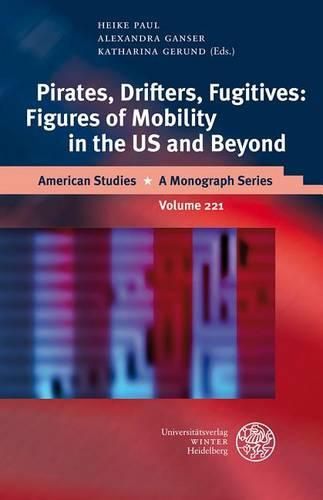Readings Newsletter
Become a Readings Member to make your shopping experience even easier.
Sign in or sign up for free!
You’re not far away from qualifying for FREE standard shipping within Australia
You’ve qualified for FREE standard shipping within Australia
The cart is loading…






Figures of mobility appear prominently in US-foundational narratives of ‘discovery, ’ the ‘Puritan errand, ’ and westward expansion; the protagonists of these hegemonic tales of settlement and nation-building are (mostly) European travellers, pioneers, and colonists. By contrast, figures such as pirates, drifters, and fugitives are for the most part absent from canonical narratives of new world beginnings and may be considered as expressing/representing alternative mobilities. Their stories and their representations raise questions of legitimacy and legality - often from a transnational perspective - and imply a critique of the American empire and its concomitant domestic discourses of marginalization. Yet, pirates, drifters, and fugitives also appear as ambiguous figures with regard to US-exceptionalist rhetoric: they may tap their subversive potential, while they are also bound to and complicit with the ideologies they seek to expose. In the context of the so-called New American Studies and the emergent field of Mobility Studies, this volume investigates these figures in a variety of cultural productions (pamphlets, song lyrics, autobiographies, novels, memorials, legal texts, video, television, and film) from the 17th century to the presen
$9.00 standard shipping within Australia
FREE standard shipping within Australia for orders over $100.00
Express & International shipping calculated at checkout
Figures of mobility appear prominently in US-foundational narratives of ‘discovery, ’ the ‘Puritan errand, ’ and westward expansion; the protagonists of these hegemonic tales of settlement and nation-building are (mostly) European travellers, pioneers, and colonists. By contrast, figures such as pirates, drifters, and fugitives are for the most part absent from canonical narratives of new world beginnings and may be considered as expressing/representing alternative mobilities. Their stories and their representations raise questions of legitimacy and legality - often from a transnational perspective - and imply a critique of the American empire and its concomitant domestic discourses of marginalization. Yet, pirates, drifters, and fugitives also appear as ambiguous figures with regard to US-exceptionalist rhetoric: they may tap their subversive potential, while they are also bound to and complicit with the ideologies they seek to expose. In the context of the so-called New American Studies and the emergent field of Mobility Studies, this volume investigates these figures in a variety of cultural productions (pamphlets, song lyrics, autobiographies, novels, memorials, legal texts, video, television, and film) from the 17th century to the presen